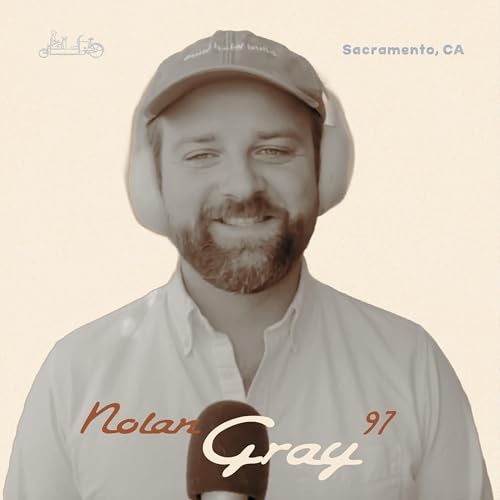Nolan Gray — Senior Director of Legislation and Research at California YIMBY — is in good traffic this week for a discussion on how the state with America’s biggest housing problem has become a national leader in reforming the rules of the built environment. California is often treated as both a cautionary tale and a blueprint — derided for its crises yet envied for its innovation.
Nolan walks us through California’s last decade of housing policy evolution — from failed early bills like SB 827 and SB 50 to seismic wins like SB 79, which legalized mid-rise multifamily housing near transit, and AB 130, which exempted infill housing from certain environmental reviews. He explains how bipartisan coalitions, local data, and a willingness to rethink outdated laws like CEQA have made real change possible.
We also touch on: Why density is environmentalism. The cultural paradox of Los Angeles and car dependence. How Sacramento quietly became California’s model midsized city. The future of transit funding and infill development. Lessons from working across political divides to make housing work. How storytelling and communication shape real policy progress.
Timeline:
00:00 The nuance of California.
01:15 The contradictions of California’s reputation.
02:29 Economic powerhouse, housing failure.
04:21 Newsom, YIMBYs, and the new momentum.
05:20 Nolan Gray.
07:23 California’s housing crisis explained.
08:47 Why families are leaving the state.
09:51 The political wake-up call.
10:12 Origins of recent SBs.
11:33 Early lessons from failed reforms.
12:24 The ADU revolution.
13:20 Environmental review reform (AB 130).
14:17 Construction costs and the next frontier.
15:11 Inside the CEQA reform victory.
20:02 Rethinking “environmentalism” in housing.
22:47 How CEQA became weaponized.
24:20 The irony of “greenfield” development.
25:40 Real environmentalists vs. procedural ones.
26:09 Bridging divides across California.
27:37 Exporting the housing crisis inland.
28:18 Bipartisan coalitions and shared values.
29:28 Property rights and family housing narratives.
30:14 SB 79 as a national model.
31:14 The transit funding question.
32:18 Transit agencies as landowners.
33:02 Revenue models for sustainable transit.
33:47 Building costs and American inefficiency.
34:31 Transit as geometry, not ideology.
35:14 The LA paradox.
36:08 Car culture as identity.
37:23 Angelenos waking up to change.
38:38 Sacramento’s quiet leadership.
45:34 Practical vs. theoretical planning.
47:20 UCLA and the civic responsibility of planners.
48:06 Donald Shoup’s influence.
50:33 Communicating policy and nuance.
52:24 The gap between research and perception.
53:05 Policy storytelling and responsibility.
54:16 How to make complexity accessible.
55:06 Why housing reform depends on communication.
56:22 Wrapping up.
For context:
Read Nolan's work on Substack.
On SB79.
On CEQA.
California YIMBY.
Nolan's book, on zoning.
 Feb 25 20261 h y 10 m
Feb 25 20261 h y 10 m Feb 13 202656 m
Feb 13 202656 m 54 m
54 m 23 m
23 m 53 m
53 m 17 m
17 m 1 h y 8 m
1 h y 8 m 57 m
57 m
